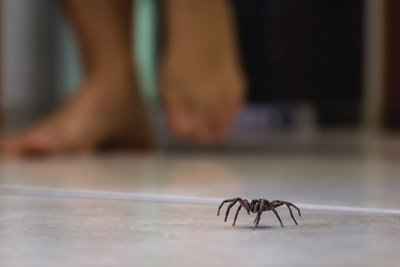 Contrary to popular belief, spiders do not hibernate.
Contrary to popular belief, spiders do not hibernate.
When autumn approaches, homeowners become more focused on the idea that pests may possibly try to seek shelter in their homes to avoid the cold. In addition to rodents and roaches, many people become concerned about spiders seeking refuge in homes because of cold weather.
With this in mind, you may wonder whether spiders in Washington, Oregon, and other states that experience colder weather seek shelter in homes and other enclosures in the wintertime.
As your local spider control experts in the PNW, we want to help you stay informed. Read more to learn about spider’s habits during cold weather and why you may be seeing them more often.
Spiders are Cold-Blooded
There are dozens of different spider species living in Washington and Oregon. Spiders are considered cold-blooded creatures. This means that, unlike mammals, spiders do not have warm blood coursing through their bodies. As a result, they are able to easily adjust to the cold temperatures.
Spider Antifreeze?
Spiders also have a substance within their bodies that acts like a type of natural antifreeze. Spiders residing outside build up this antifreeze-like substance in their bodies over time and in anticipation of changes in weather. The typical spiders, including the species in Washington and Oregon, are able to survive in very low temperatures.
Generally speaking, spiders in the Pacific Northwest are able to readily survive outside in temperatures as low as -5 degrees Fahrenheit. Wintertime temperatures in this part of the United States average between 30 to 40 degrees Fahrenheit at their worst.
Why Are Spiders In My Home?
Spiders are often seen inside homes, businesses, and other types of buildings during winter. However, they aren’t looking for a place to stay warm, they are hunting for food, primarily insects that are hibernating themselves.
Isolated spiders living in a home tend to cause very few problems, provided they are not poisonous. And there can be some benefit to an occasional spider in a home or other structure because the arachnid can eliminate other pests. With that said, if you are an individual who is afraid of spiders or if spider sightings are a frequent occurrence, you may want to consider spider control services. Call Antworks today for a free quote!







